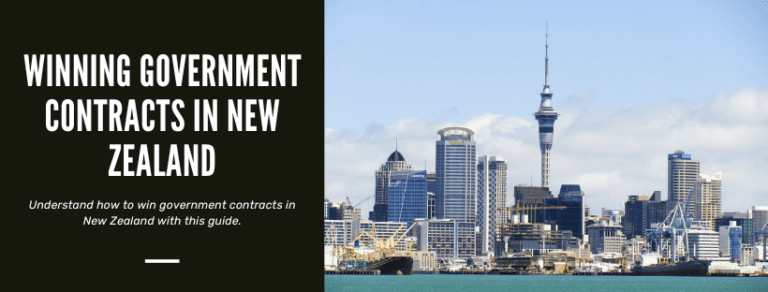Securing a government contracts in New Zealand can be a game-changer for businesses, offering long-term stability and significant revenue opportunities. However, navigating the complex procurement process and outshining competitors requires careful planning and strategic execution.
Understanding the Landscape:
Types of Contracts:
Government procurement involves various contract types, each with its own regulations and requirements. Common types include open tenders, closed tenders, direct sourcing, and framework agreements. Familiarizing yourself with these types and their suitability for your capabilities is crucial.
The Government Electronic Tenders Service (GETS): GETS is the primary platform for government agencies to advertise tender opportunities. Registering on GETS and actively monitoring relevant categories based on your expertise is essential for identifying potential contracts.
Procurement Policies and Principles: New Zealand’s procurement system adheres to specific principles like fairness, transparency, and value for money. Understanding these principles and aligning your proposal with them is vital for success.
Preparing for the Competition:
Know Your Strengths and Differentiators: What sets your business apart from the competition? Identify your unique selling points, whether it’s specialized expertise, innovative solutions, or a proven track record of successful project delivery.
Build a Winning Team: Assemble a team with the necessary skills and experience to fulfill the contract requirements. Consider partnering with complementary businesses to plug any gaps in your expertise.
Financial Capacity and Sustainability: Government agencies prioritize financially stable and sustainable suppliers. Ensure your business has the financial resources to undertake the project and demonstrate your ability to meet ongoing obligations.
Crafting a Compelling Proposal:
Thorough Understanding of the Tender: Carefully read and analyze the tender document, paying close attention to evaluation criteria, deliverables, and timelines. Ensure your proposal comprehensively addresses all requirements and demonstrates a clear understanding of the project’s objectives.
Clarity and Concision: Communicate your message effectively using clear, concise, and professional language. Avoid technical jargon and ensure your proposal is easy to understand for the evaluation team.
Value Proposition and Cost-Effectiveness: Clearly articulate the value your proposal brings to the government agency. Highlight how your solution will address their needs and deliver tangible benefits. Back up your claims with data and evidence of past successes.
Compliance and Eligibility: Ensure your proposal adheres to all specified formatting and submission requirements. Double-check for any technical glitches or missing documents before submitting.
Beyond the Proposal:
Building Relationships: Government procurement often involves long-term partnerships. Networking with government agencies and key decision-makers can build trust and provide valuable insights into future opportunities.
Past Performance and References: Showcase your successful track record of delivering similar projects on time and within budget. Provide strong references from satisfied clients to bolster your credibility.
Continuous Improvement: The procurement landscape is constantly evolving. Stay updated on industry trends, regulations, and best practices to maintain your competitive edge.
Wrapping Up
Winning a government contract in New Zealand requires a well-defined strategy, meticulous preparation, and a commitment to delivering exceptional value. By following the steps outlined in this guide and continuously honing your expertise, you can significantly increase your chances of securing lucrative contracts and building a strong partnership with the New Zealand government.
Remember: This is a general guide, and specific requirements may vary depending on the individual tender. Always consult the official tender documentation for detailed information and tailor your approach accordingly.
